Digital Humanities, Themes
A keynote roundtable on “Public Humanities 2.0: Cultural Heritage Research-and-Teaching in a Digital Age” will be an opportunity to focus attention on the materiality of digital media and the transformations of both scholarly communication and classroom practices made possible by digital media. Workshops on “Digital Humanities Assignment Design,” “Teaching with Social Media Platforms,” and “Managing Your Digital Image Resources” will offer institute participants opportunities for guided work on their own projects. Additional sessions that complement this theme will be available throughout Summer Faculty Institute 2015.
The “Public Humanities 2.0” track of the Summer Institute is a follow-on to the DH lecture and workshop series that has been co-sponsored by the Interdisciplinary Humanities Research Center, IT Academic Technology Services, the University of Delaware Library, the College of Arts & Sciences, and the Department of English for the last several years.
Digital Humanities, Guest Presentation, June 1
Date: Monday, June 1
Time: 1:00 – 3:00 p.m.
Location: Gore Hall 104
Public Humanities Roundtable from Summer Faculty Institute 2015
Jesse Stommel SlideShare Presentation: New-form Scholarship and the Public digital humanities
This year’s University of Delaware Summer Faculty Institute features a keynote roundtable, “Public Humanities 2.0: Cultural Heritage Research-and-Teaching in a Digital Age,” that will be an opportunity to focus attention on the materiality of digital media and the transformations of both scholarly communication and classroom practices made possible by digital media.
 Michelle Moravec, Rosemont College
Michelle Moravec, Rosemont College
Michelle Moravec is an associate professor of history at Rosemont College in Philadelphia, PA. After receiving her Ph.D. in US history from the University of California Los Angeles, she worked in a range of alt-ac positions including women’s leadership and directing the Women’s Center at William Paterson University. She is a frequent digital history workshop presenter. Her writings about the field have appeared in The Chronicle of Higher Education, Inside Higher Education, the University of Venus, and Women in Higher Education and at her monthly column for the Mid-Atlantic Research Center for the Humanities. Her current project, the Politics of Women’s Culture, is being written in public on the web and has been funded by the Getty Research Institute, the Schlesinger Library, and Barnard College Library.Her completed digital history projects include Gender in the History of Woman Suffrage, Unghosting Apparitional Lesbian History, and Visualizing Schneemann. She also collaborates with students at Rosemont College and Villanova University on two additional digital history project, Till I’ve Done All that I Can: Alma A Clarke’s Great War, and Chapel of Delight: the Chapel of the Immaculate Conception at Rosemont College.
 Jesse Stommel, University of Wisconsin
Jesse Stommel, University of Wisconsin
Jesse Stommel is Assistant Professor of Digital Humanities in the Department of Liberal Arts and Applied Studies at University of Wisconsin-Madison. He is also Founder and Director of Hybrid Pedagogy: a digital journal of learning, teaching, and technology. Jesse is an advocate for lifelong learning and the public digital humanities. He teaches courses about digital pedagogy, digital storytelling, horror film, and Shakespeare. He experiments relentlessly with learning interfaces, both digital and analog, and works in his research and teaching to emphasize new forms of collaboration. He can be found on Twitter @Jessifer.
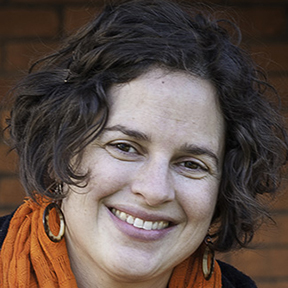 Janneken Smucker, West Chester University
Janneken Smucker, West Chester University
Janneken Smucker is Assistant Professor of History at West Chester University where she specializes in digital history, public history, and American material culture. In the college classroom, she integrates technology and the humanities, working with her students to create websites, podcasts, digital archives, and online exhibitions. In fall 2014, she co-taught “Digital Storytelling and the Great Migration to Philadelphia” with Professor Charles Hardy, teaming graduate students with undergraduate Honors College students and history majors in the creation of goinnorth.org. Prior to joining WCU’s faculty, Janneken was content specialist at Night Kitchen Interactive, a firm specializing in websites and digital projects for museums and cultural organizations. She recently served as co-curator and lead content strategist and editor for World Quilts: The American Story, a digital project of the International Quilt Study Center & Museum at the University of Nebraska—Lincoln. The author of Amish Quilts: Crafting an American Icon (Johns Hopkins University Press, 2013), Janneken lectures and writes widely on the topic of quilts for both popular and academic audiences. She earned her PhD from the University of Delaware’s Program in the History of American Civilization in 2010.
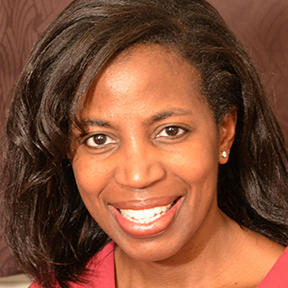 LaTanya S. Autry, Yale University Art Gallery
LaTanya S. Autry, Yale University Art Gallery
LaTanya S. Autry is a Ph.D. candidate in the art history department at University of Delaware and the Marcia Brady Tucker Fellow in photography at Yale University Art Gallery. She studies art of the United States, photography, and museums. Her dissertation The Crossroads of Commemoration: Lynching Landscapes in America explores the meaning of representation, embodied practices, collaborative art, landscape, and memorial culture. The digital humanities are integral to LaTanya’s public scholarship and social justice orientation. As an educator, she has incorporated blogging and tweeting to increase class interaction, enhance learning, and engage diverse publics in her History of Photography courses. Outside of writing her dissertation and working at the Gallery, she presents her research at academic and public lectures and engages broad audiences via social media forums, such as WordPress, Twitter, Flickr, Google Maps, and Pinterest. After earning her degree LaTanya plans to “hack” her dissertation to co-produce a multimedia exhibition centered on lynching memorials.
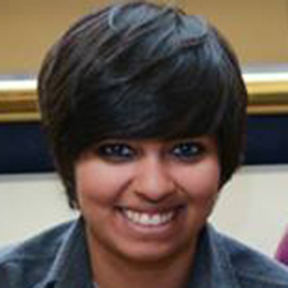 Archana Kaku, Tri-Co Digital Humanities
Archana Kaku, Tri-Co Digital Humanities
Archana Kaku is the Program Coordinator for Tri-Co Digital Humanities, a consortial DH initiative by Bryn Mawr, Haverford, and Swarthmore Colleges dedicated to promoting digital innovation through humanities-based inquiry. Her work focuses on not just the role of the undergraduate liberal arts institution, but of the undergraduate herself in digital humanities research, production, and exploration. She has also worked for the Provost Office’s Academic Technology Initiative at Bryn Mawr College.
Kristen Poole, English, University of Delaware
Digital Humanities, June 1
Date: Monday, June 1
Time: 3:00 – 4:00 p.m.
Location: Gore Hall Rotunda
Featuring ice cream by UDairy Creamery.
Carley Becker, English major, University of Delaware
Carley Becker is a junior English major who works as a Peer Tutor at the University of Delaware’s Writing Center, writing creatively in the hopes of becoming a full-time author and publisher. This summer she is already working as an editor in Baltimore. Carley was the Project Manager for the ENGL 468 website build.
Madeline Cooper, University of Delaware
Using iBook to Explore a Parchment Manuscript
Zach Davis, actor and writer, University of Delaware
Zach Davis has studied and performed Shakespeare for ten years. At UD, Zach created and hosts Our Brief Hour, a radio show dedicated to Shakespearean poetry and prose. You can find a recording of each show, along with his other voice projects, on YouTube. He apprenticed with the Delaware Shakespeare Festival and would be thrilled to make that his life’s work. He also works as an actor and facilitator in UD’s Healthcare Theater program, training performers to portray a wide variety of patients in clinical simulations with student nurses. Zach was one of the General Editors for the ENGL 468 website build.
Carrie Edinger, digital artist
The Internet-based collection project contributes to the expanding cultural dialog of the use of digital media within contemporary art. The investigation and implementation of interdisciplinary methods are used to maintain and archive an ephemeral collection. The purpose for the Internet-based collection project is to obtain a broader knowledge of Western Cultural objects. The concept for the collection project regards objects beyond a fixed idea of how they are exhibited in traditional museum collections. The collections are formed and defined by material culture methods, along with social and culturally based research. With nearly four years in the collecting process, a website http://www.carrieida.com is the exhibit platform for the acquisitions of a continually evolving collecting process.
Kasey Grier, Director of Museum Studies, University of Delaware
Kasey Grier will showcase “Sustaining Places” – a collaborative resource project from the Museum Studies Program at the University of Delaware and the Tri-State Coalition of Historic Places. This site is supported by a grant from the Institute for Museum and Library Services’ 21st Century Museum Professionals Program. This website collects examples of good ideas and best practices for small historical organizations and the content is curated and created by MSST students.
Audrey Hamelers, University of Delaware Library
Audrey Hamelers is the Digital Humanities and Web Services Librarian at the Morris Library at the University of Delaware. Audrey will be discussing the library’s DH resources and in particular, her work with Omeka.
Mary Purnell, English major, University of Delaware
Mary Purnell is a senior at the University of Delaware, majoring in English and minoring in Spanish. She currently works as an English tutor in the University of Delaware’s Writing Center and as a TA for four Spanish classes. Synthesizing her teaching skills in both languages with her passion for literature, Mary is pursuing a career in education with a focus on teaching English as a Second Language for native speakers of Spanish. At the University of Delaware, Mary developed a keen interest in 16th and 17th century drama, particularly for Shakespeare and his Spanish counterpart, Lope de Vega.
Lawrence Shapiro, lecturer, Philadelphia University
Lawrence Shapiro will showcase his project on ethnography and liberal networks around Daniel Brinton and his circles, Franz Boas and Friedrich S. Krauss, my relatively obscure Viennese Croatian-Jewish topic of interest, for his presentations to Philadelphia and the APS: 1885, 1888, 1893.
Digital Humanities, Guest Presentation, June 2
Date: Tuesday, June 2
Time: 10:30 – 12 noon
Location: Gore Hall 104
Measuring and Enhancing Critical Thinking of Students from Summer Faculty Institute 2015
Jesse Stommel’s The Decay of the Digital Human on Vimeo
This workshop will explore methods and approaches for designing assignments that leverage digital tools for humanistic inquiry. We’ll look at several digital humanities assignments as examples, but the workshop will also raise larger interdisciplinary questions. We will talk about when and how to assess digital projects. Much of our work in education resists being formulated as neat and tidy outcomes. When learning is the goal, space should be left for wonder and experimentation.
 Jesse Stommel
Jesse Stommel is Assistant Professor of Digital Humanities in the Department of Liberal Arts and Applied Studies at University of Wisconsin-Madison. He is also Founder and Director of Hybrid Pedagogy: a digital journal of learning, teaching, and technology. Jesse is an advocate for lifelong learning and the public digital humanities. He teaches courses about digital pedagogy, digital storytelling, horror film, and Shakespeare. He experiments relentlessly with learning interfaces, both digital and analog, and works in his research and teaching to emphasize new forms of collaboration. He can be found on Twitter @Jessifer.
Digital Humanities, Guest Presentation, June 2
Date: Tuesday, June 2
Time: 1:00 – 3:00 p.m.
Location: Gore Hall 104
Teaching with Social Media Platforms from Summer Faculty Institute 2015
Please note: To play along in this session, please create your accounts (and download apps) in advance in Tumblr, Pinterest, Twitter, Instagram, and Snapchat.
This hands-on workshop will walk participants through the application of various social media platforms, such as Tumblr, Pinterest, Twitter, Instagram, and Snapchat, to digital humanities pedagogy. Emphasis will be on the affordances of these platforms in creating a wide range of assignments.
 Michelle Moravec
Michelle Moravec is an associate professor of history at Rosemont College in Philadelphia, PA. After receiving her Ph.D. in US history from the University of California Los Angeles, she worked in a range of alt-ac positions including women’s leadership and directing the Women’s Center at William Paterson University. She is a frequent digital history workshop presenter. Her writings about the field have appeared in The Chronicle of Higher Education, Inside Higher Education, the University of Venus, and Women in Higher Education and at her monthly column for the Mid-Atlantic Research Center for the Humanities. Her current project, the Politics of Women’s Culture, is being written in public on the web and has been funded by the Getty Research Institute, the Schlesinger Library, and Barnard College Library.Her completed digital history projects include Gender in the History of Woman Suffrage, Unghosting Apparitional Lesbian History, and Visualizing Schneemann. She also collaborates with students at Rosemont College and Villanova University on two additional digital history project, Till I’ve Done All that I Can: Alma A Clarke’s Great War, and Chapel of Delight: the Chapel of the Immaculate Conception at Rosemont College.
Community Engagement, Critical Thinking, Digital Humanities, Digital Storytelling, Engaging Difference, June 3
Date: Wednesday, June 3
Time: 10:30 – 12:00 noon
Location: Gore Hall 104
Optimize Your Professional Online Presence from Summer Faculty Institute 2015
Learn best practices for building your digital brand as an academic professional. Participants will leave this session with recommendations for a universally-identifiable Internet name, a bio sketch tailored for different social media channels, and the start on a checklist of the most important steps to take to establish your optimal professional online presence (that is to say, what people see when they google you).
 Holly Norton, Communications and Public Affairs
Holly Norton, Communications and Public Affairs
Holly Norton is a communications professional who specializes in digital strategy and social media production, analysis and marketing. Throughout her 15-year career at Gannett, Holly worked in the sports department as a copy editor and writer, launched Spark, a successful entertainment weekly focused on Delaware young professionals, and led the newsroom in social media development and strategy as the community engagement editor. As The News Journal and Delawareonline brand transitioned into a paid content business model, Holly designed and implemented a social media strategy for reporters and editors, a crisis and brand reputation management protocol and acted as a liaison between the marketplace and The News Journal staff. Holly has been recognized by Gannett corporate as a leading manager, recipient of Chairman’s Award, Individual Excellence Award, as well as received multiple Delaware Press Association awards for column writing and editing. She is also a University of Delaware alumnus, class of 1998.
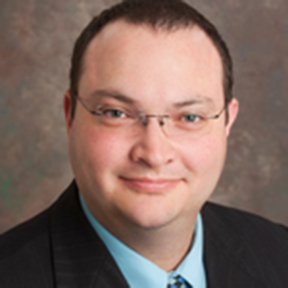 Mathieu Plourde, Academic Technology Services
Mathieu Plourde, Academic Technology Services
Mathieu Plourde is an educational technologist with IT Academic Technology Services at the University of Delaware. He holds a bachelor’s degree in graphic design (2000) and an M.B.A. (2006), both acquired at Université Laval, Quebec City, Canada. He is now pursuing an Ed.D. in educational leadership at the University of Delaware, and taught a class on social networking for educators in 2012. His multidisciplinary background (graphic, web and instructional design, IT, marketing, e-commerce, management, communication, education, etc.) gives him a unique view of teaching, learning, and user support. He is also a social media strategist and an open education advocate.
Community Engagement, Digital Humanities, Engaging Difference, June 3
Date: Wednesday, June 3
Time: 1:00 – 2:00 p.m.
Location: Gore Hall 104
Getting Our Hands Dirty: An Environmental Humanities Farm Project
An Environmental Humanities Farm Project from Summer Faculty Institute 2015
This talk will describe a new Environmental Humanities collaboration with a local organic farm, which has humanities studies planting, tending, harvesting, preparing and marketing organic produce. The project, in its first year, has been the center of a semester-long study of local and global food systems; has been a source of a number of student-written articles and essays; and is on the verge of “scaling up” with an eye on providing more local, organic food to the university and the Newark and Wilmington communities.
 McKay Jenkins, English
McKay Jenkins, English
McKay Jenkins has been writing about people and the natural world for almost 30 years. He is the author (with EG Vallianatos) of Poison Spring: The Secret History of Pollution and the EPA (Bloomsbury, 2014); What’s Gotten Into Us: Staying Healthy in a Toxic World (Random House, 2011); Bloody Falls of the Coppermine: Madness, Murder and the Collision of Cultures in the Arctic, 1913 (Random House, 2005); The Last Ridge: The Epic Story of the U.S. Army’s 10th Mountain Division and the Assault on Hitler’s Europe (Random House, 2003); The White Death: Tragedy and Heroism in an Avalanche Zone (Random House, 2000); and The South in Black and White: Race, Sex, and Literature in the 1940s (Univ. of North Carolina Press, 1999) and the editor of The Peter Matthiessen Reader (Vintage, 2000). Jenkins holds degrees from Amherst, Columbia’s Graduate School of Journalism, and Princeton, where he received a PhD in English. A former staff writer for the Atlanta Constitution, he has also written for Outside, Orion, The New Republic, The Huffington Post, and many other publications. Currently the Tilghman Professor of English, Journalism and Environmental Humanities at the University of Delaware, he lives in Baltimore with his family.
Introducing Students to the Geography of Environmental Justice: Spatial Visualization and Social Science for General Education
The Geography of Environmental Justice from Summer Faculty Institute 2015
Victor Perez presentation slides and handout (PDF format)
Studying environmental justice communities with maps allows students to see several related social phenomena, including race and socio-economic status, layered with specific geographic areas that have disproportionate levels of environmental burdens. The spatial patterns of race, socio-economic status, and pollution are not a coincidence, and have deep roots in industry, poverty, housing, race, and discrimination. This presentation will highlight one example drawn from the planned curriculum for a general education course on integrating spatial visualizations into social science analyses. The curriculum, supported by a 2014-15 IT/CTAL Innovative Transformation Grant, is being developed for a course that will allow non-geography, non-social science students an opportunity to see the power of mapping in the social sciences without a sophisticated GIS background.
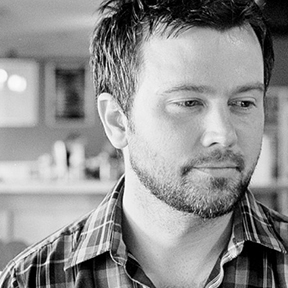 Victor Perez, Sociology
Victor Perez, Sociology
Victor Perez is an assistant professor of sociology with specializations in the sociology of risk, public health, medical sociology, and survey research. A unifying theme throughout his graduate student and early professorial career is the entwined configuration of health, risk, and society, focusing on health issues as social problems. Currently, his research projects include a survey of vaccine risk perception; citizen-science alliances dealing with legacy pollution and sea-level rise in impoverished areas; and studying how the popular media presents the issue of cancer clusters. As a faculty member in the Department of Sociology and Criminal Justice at UD, he regularly teaches quantitative sociological research methods, social statistics, and data analysis, as well as introductory sociology. Other courses that he has created include the Sociology of Diagnosis, as well as Environment and Health.
Community Engagement, Critical Thinking, Digital Humanities, Digital Storytelling, June 3
Date: Wednesday, June 3
Time: 2:15 – 3:15 p.m.
Location: Gore Hall 104
Five Minutes of Fame from Summer Faculty Institute 2015
Five Minutes of Fame is a fast-paced session where you can pick up ten exciting ideas, technologies, projects, or resources, all in five minute doses. Presentations can come from any faculty or staff participant at this year’s institute. Want to be considered for this year’s list of 10? E-mail your idea to faculty-commons@udel.edu
Doceri by Kim Graves, Interdisciplinary Science Learning Laboratory
Be untethered from the podium, as you control (and annotate!) your presentation from anywhere in the room.
TED-Ed Videos by Mu He, IT Academic Technology Services
Build a lesson around any TED-Ed Original, TED Talk or YouTube video.
Practicing Partnership by Lindsay Hoffman, Communication
Students cross divides to apply technology to social, political problems.
Flippity by Sandy McVey, IT Academic Technology Services
Easily turn a Google spreadsheet into a trivia game show.
StrengthsQuest by Michele Kane, Residence Life & Housing
StrengthsQuest – helping students reach their full potential: StrengthsQuest is an inventory which helps students understand their natural talents and ways of being. When students better understand their talents and apply these ways of being to everyday actions, they can turn the talent into a strength. This tool has been used to help students work in teams and approach challenges. Additionally, the online tools connected to this inventory help students understand how to best approach their academics, relationships, and their career search.
IT Security for Faculty by Sean Barefoot, IT Client Support & Services
Best Practices in IT Security for Faculty
Name That Tool by Becky Kinney, IT Academic Technology Services
A new tool for working with online assessment
Whiteboard Video Creation Tools by Aaron Davis, CUNY- Hostos Community College
Leveraging student Consumption of Media: Learn about media consumption trends, and how Whiteboard video tools can leverage student retention.
(Hat tip to the New Media Consortium for pioneering this session format.)
Community Engagement, Critical Thinking, Digital Humanities, Digital Storytelling, Engaging Difference, June 4
Date: Thursday, June 4
Time: 9:00 – 10:00 a.m.
Location: Mitchell Auditorium
Video Street Ethnography from Summer Faculty Institute 2015
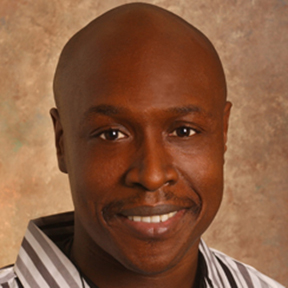 Yasser A. Payne
Yasser A. Payne is an associate professor in the Department of Black American Studies at the University of Delaware. His street ethnographic research program is centered on exploring notions of resiliency with the streets of Black America using an unconventional methodological framework entitled Participatory Action Research–the process of involving members of the population of interest on the actual research team.
His approach to diversity is centered on exploring or examining the variation of psychological identity as it relates to Black and Brown populations involved with the criminal justice system. In most instances, such populations are framed in a monolithic way and Dr. Payne through his research has found great emotional, psychological and developmental variation. Also, he aims to break down or through stereotypical barriers and images of Black and Brown people in the criminal justice system, so that transition back in the community and opportunities for upward mobility are successful. Dr. Payne’s work is centered on humanizing those in the criminal justice system and getting undergraduate and graduate students as well as faculty and/or everday residents to work more closely with those in the criminal justice system.
Digital Humanities, Digital Storytelling, June 4
Date: Thursday, June 4
Time: 2:15 – 3:15 p.m.
Location: Room B, Student Multimedia Design Center, Morris Library
Introduction to Artstor hosted collections and their creation and maintenance using the Shared Shelf platform. Overview on the structuring and decisions involving item level metadata, the target audiences, rights, Creative Commons licensing and associated topics. Concluding with a walk through of the mechanics of entering and maintaining information in Shared Shelf.
Mary Durio, University of Delaware Library
Mary Durio is in charge of the University of Delaware Library’s Center for Digital Collections. She has extensive experience working with digital collections creation and content conversion. She is in charge of developing digital collections that are housed in the University library from scanning of collections to developing metadata crosswalks to creating the collections online. She has been involved with and working with Artstor Shared Shelf since 2011.
Mark Grabowski, University of Delaware Library
Mark Grabowski is in charge of the University of Delaware Library Data and Server Management department. Mark has been working with digital collections for the past fourteen years. He is responsible for the day to day running of the University Institutional repository and is the University technical contact to Artstor. Mark has been involved with Artstor Shared Shelf since 2011 when the product was still in a beta release.











